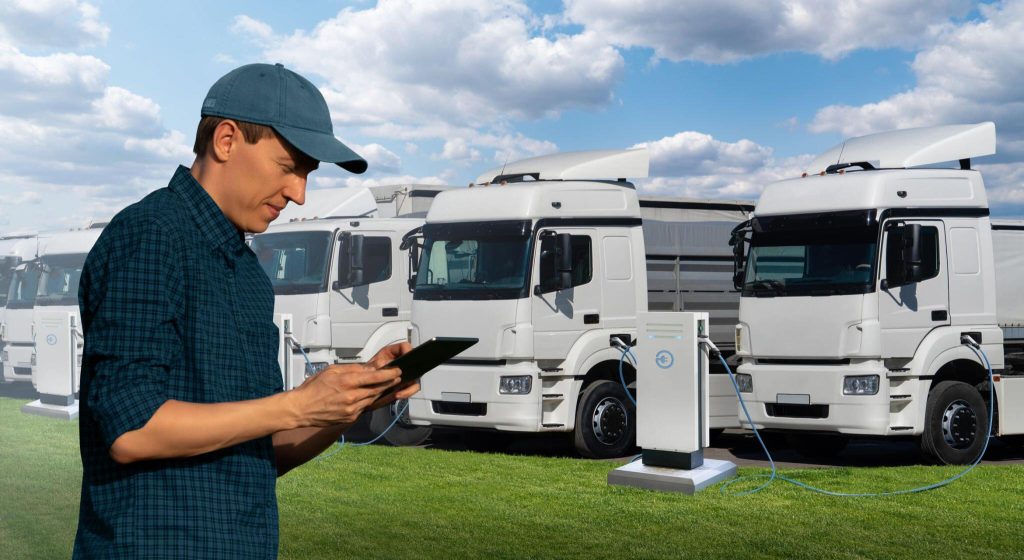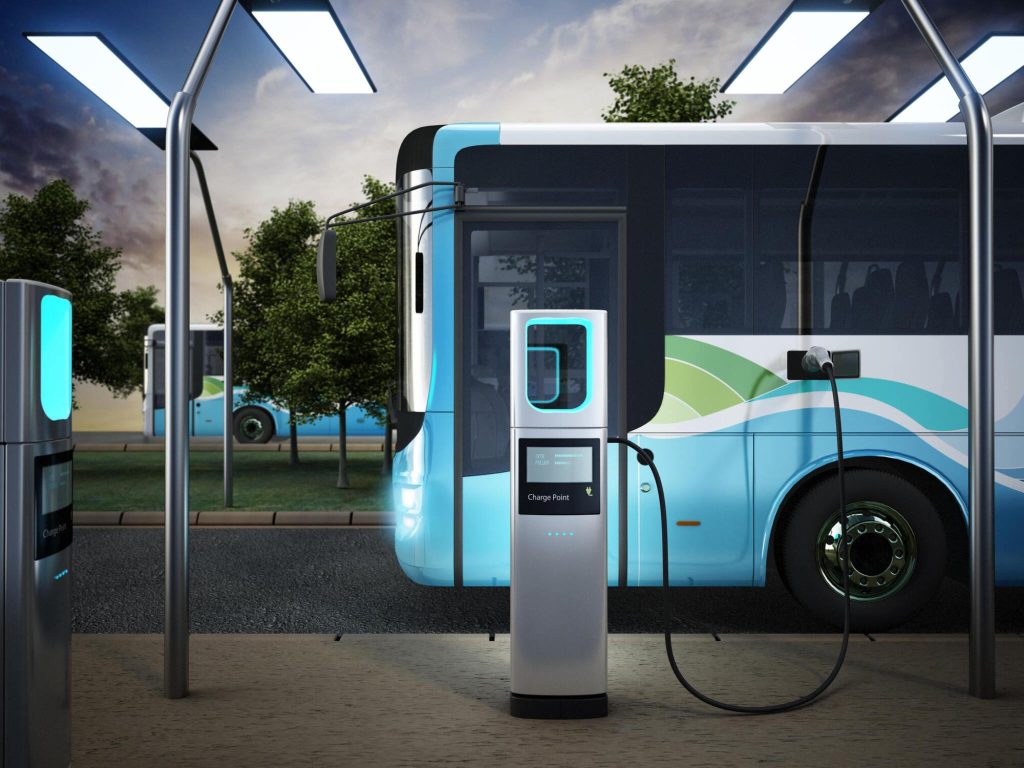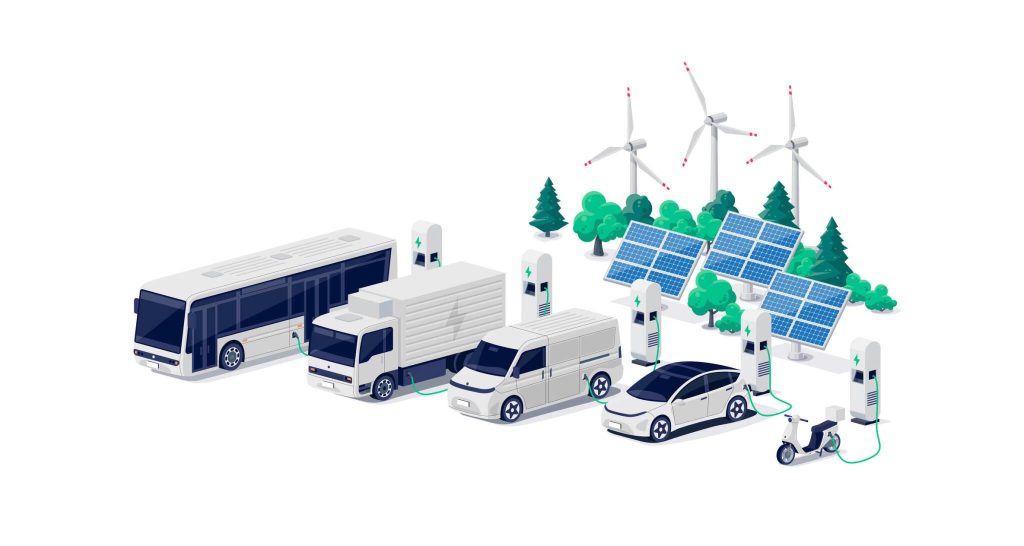
In the rapidly evolving world of transportation, the shift towards electric vehicles (EVs) is more apparent than ever. This change is significantly impacting how businesses manage their vehicle fleets. Fleet EV charging is not just a trend but a strategic move towards cost-effectiveness, efficiency, and environmental responsibility.
In this comprehensive guide, we’ll explore the ins and outs of fleet services electric charging, ensuring your business is well-equipped for this technological shift.
Understanding EV Fleet Charging
EV Fleet Charging: At its core, EV fleet charging involves providing charging solutions for a group of electric vehicles, typically owned and operated by a business. This shift is an integral part of the global movement towards reducing carbon emissions and embracing cleaner, more sustainable energy sources.
Fleet Services Electric Charging: Adopting fleet services electric charging means integrating charging infrastructure into your existing operational framework. This involves installing charging stations, managing charging schedules, and ensuring that the EV fleet is always ready to meet the demands of the business.
The Transition to EV Fleet Charging
Transitioning to an EV fleet is more than just replacing petrol or diesel vehicles with electric ones. It requires a strategic approach, an understanding of the nuances of EV operation, and a robust charging infrastructure.
1. Assessing Your Needs
Before diving into the world of fleet EV charging, it’s essential to assess your specific needs. Consider the size of your fleet, the average distance covered, the types of vehicles required, and your budget. This assessment will guide your decisions in terms of the number and types of chargers needed.
2. Choosing the Right Charging Solutions
There are various types of EV chargers, from slow chargers ideal for overnight charging to rapid chargers for quick top-ups. The choice depends on your fleet’s operational requirements and turnaround times.
3. Installation and Infrastructure
Installing EV chargers requires planning and investment. You need to consider the location of chargers, the electrical capacity of your premises, and the potential need for upgrading your electrical infrastructure.
Fleet Services EV Charging: Operational Strategies

Operating an EV fleet isn’t just about having the right vehicles and chargers. It involves strategic planning to ensure efficiency and cost-effectiveness.
1. Charging Management
Effective charging management is crucial. This includes scheduling charging times to avoid peak electricity tariffs, monitoring charger usage, and ensuring chargers are accessible when needed.
2. Maintenance and Upkeep
EVs and charging stations require maintenance, albeit less than traditional vehicles. Regular checks and servicing of both vehicles and chargers are essential to ensure smooth operations.
3. Training and Awareness
Your staff needs to be trained in handling EVs and using charging stations. Awareness about the benefits of EVs and proper charging etiquette is also crucial.
The Benefits of Fleet EV Charging
1. Environmental Impact
The most significant benefit of transitioning to an EV fleet is the reduction in carbon emissions. EVs produce zero emissions at the point of use, contributing to cleaner air and a healthier environment.
2. Cost Savings
EVs have lower running costs compared to traditional vehicles. They are more energy-efficient, have fewer moving parts, and require less maintenance.
3. Reputation and Compliance
Having an EV fleet enhances your company’s image as a forward-thinking, environmentally responsible entity. It also helps in complying with increasingly stringent emissions regulations.
Overcoming Challenges
Transitioning to EV fleet charging presents several hurdles, but with thoughtful strategies, these can be navigated successfully.
Initial Investment Cost
The shift to EVs involves significant upfront costs, including purchasing new vehicles and setting up charging infrastructure. However, this initial investment can be mitigated through various financing options, government incentives, and grants specifically designed to support the adoption of electric vehicles. Moreover, the long-term savings in fuel and maintenance costs should also be factored into the overall cost-benefit analysis.
Range Anxiety
Range anxiety – the fear of running out of battery power before reaching a destination or charging point – is a common concern. This can be addressed by strategically planning the location of charging stations, ensuring they are easily accessible for fleet drivers.
Advancements in EV technology are continually increasing battery life and efficiency, gradually reducing this concern. Additionally, educating drivers about efficient driving habits and real-time battery management can significantly alleviate range anxiety.
Adapting to New Technologies
Adapting to EV technology can be challenging, especially for businesses used to traditional vehicles. This transition requires a mindset shift and a willingness to embrace new technologies. Training programs for drivers and fleet managers are crucial in facilitating this change.
Understanding the functionalities of EVs, optimal usage of charging stations, and staying updated with the latest advancements in EV technology is integral to a smooth transition.
The Future of Fleet EV Charging

The future of fleet EV charging is not just promising; it is poised to revolutionize the way businesses approach transportation. As advancements in EV technology continue at a rapid pace, we can expect to see significant improvements in battery life, charging speed, and vehicle efficiency.
The development of faster and more efficient charging solutions, such as ultra-fast charging stations, will significantly reduce downtime for vehicles, enhancing operational efficiency.
Government policies and incentives are playing a crucial role in this evolution. Many countries are introducing regulations and financial incentives to promote the adoption of EVs and the development of charging infrastructure.
This governmental support not only makes the transition to EV fleets more feasible for businesses but also underscores the global commitment to reducing carbon emissions and combating climate change.
The vision of the future for fleet EV charging is clear – it’s smarter, faster, and more integrated with the broader energy ecosystem. As businesses adapt to these changes, they will find themselves at the forefront of an environmental and technological revolution, reaping the benefits of a more sustainable, efficient, and cost-effective fleet management system.
Conclusion
Adopting fleet EV charging is a significant step towards sustainability and operational efficiency. By understanding the nuances of EV fleet charging and implementing effective strategies, businesses can reap the benefits while contributing to a greener future. The journey towards an electrified fleet is not just a trend; it’s the future of transportation. Businesses that embrace this change are poised for success in an increasingly eco-conscious world.
Are you looking for a reliable Fleet EV charger installation service in London or Surrey? Don’t wait any longer to make the switch to electric! Elite Vehicle Chargers is your go-to solution for professional and efficient Fleet electric vehicle charger installations. Our team of experts is dedicated to providing you with the best service, ensuring your EV charging solution is tailored to your specific needs. Whether you’re at home or work, we’ve got you covered. Click here to visit our website and learn more about our services. Contact us today to schedule your installation and join the electric revolution with confidence!
